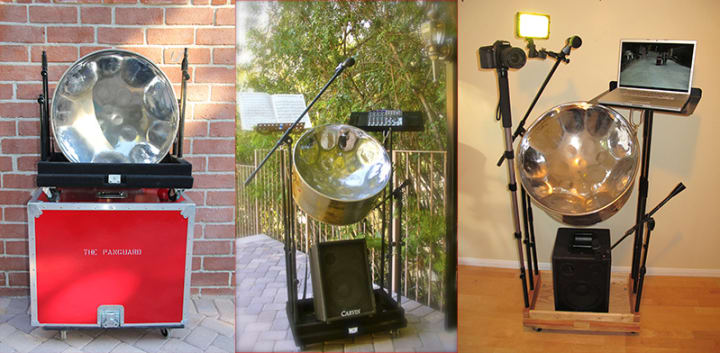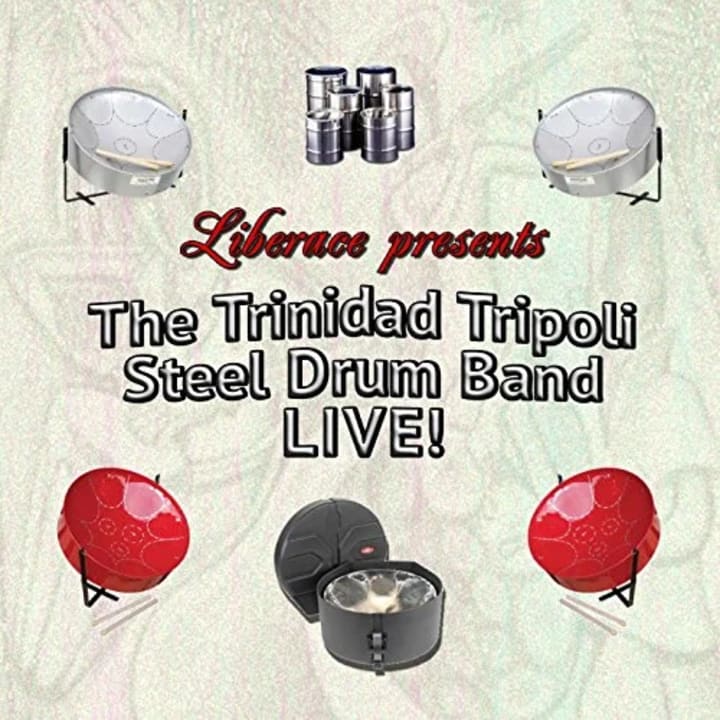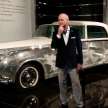Liberace, Hugh Borde and the steel drum
The unlikely partnership which brought the Caribbean sound to the world
The steel drum, also simply called "Pan," was developed in the Caribbean island country of Trinidad & Tobago, during World War II. The instrument is fashioned by hand from various forms of sheet metal, with the best having been the empty oil drums that littered the country just after the war.

A Cultural Phenomenon
The instrument caught on like wildfire, primarily among the poor and underprivileged people who developed it. A new sound, unique to the tiny, twin island nation, came to be its cultural calling card. Cultural icons are powerful, and new ones often face resistance for the power and change they bring. The steel drum was no exception. One could be jailed even for playing in a steel band, early on. Soon steel bands were extremely competitive, and became known equally as gangs in that era. This came to an end when an official association was developed, and then a national band-with members from various previously warring groups, was created. Hugh Borde, doubly controversial because he came from the privileged professional class, was instrumental in both of these accomplishments.
Hugh organized the first sponsored steel band in Trinidad and Tobago, called Hells Kitchen, in 1945. In 1951 he became the leader of the Trinidad Tripoli Steel Band. In 1962 he lead the national Trinidad & Tobago Steel band at the Commonwealth Arts Festival in Great Britain. Esso Petroleum sponsored the band in 1965. They toured, and played for Queen Elizabeth II of England at Royal Albert Hall; Princess Margaret on the Royal Yacht Britannia; and to Emperor Haile Selassie during his visit to Trinidad and Tobago in 1966.
A life-changing encounter
Then in 1967, Hugh Borde and his Trinidad and Tripoli steel band were chosen to represent his Country, at the the International and Universal Exposition in Toronto, better known as "Expo '67." This time, another showman was in the crowd.

Liberace said that when he entered the main gates of Expo '67, he could hear incredible music, which sounded as if it were floating above the clouds. He followed the sound and discovered the band, and an ecstatic audience also being introduced to the instrument for the first time. Liberace immediately invited Hugh Borde and his orchestra to join him on tour. They did so, and Liberace's sponsorship put the Trinidad & Tripoli Steel Orchestra on the road with him for over two years, as well as on every major American television show.
Liberace was fascinated with the instrument, its simplicity and its humble beginnings among the poor and underprivileged. He and Borde combined were uniquely qualified to demonstrate that the steel drum was the only instrument created in the twentieth century which could replicate the sound of a symphony orchestra. Liberace was especially impressed, and said so often, with the orchestra members and Hugh himself. He described them with tremendous excitement, and admiration at their musicality and showmanship, at every opportunity. Borde credited Liberace with sponsoring their visas to the United States, and creating the access which placed the band with so many outlets for their music. This is what borde said allowed them to be successful, and ultimately brought about the popularity of the steel drum in north America.

A cultural icon, and a loyal friend
The Ed Sullivan Show, the Merv Griffin Show, the Mike Douglas Show, David Frost, Johnny Carson, and more all featured Hugh Borde and his steel orchestra, along with Liberace. He not only introduced them, he played piano in concert with them.
Along the way, Hugh and the band met many of Liberace's friends, including Elvis Presley, Sammy Davis, Jr, Frank Sinatra and Michael Jackson. But the loyal Hugh Borde never stopped singing the praises of the showman who first invited him to the party.
"I don't believe there was ever an entertainer of the class of Liberace."
-Hugh Borde
Hugh continued to perform throughout his life, as do his descendants. He is recognized as a cultural icon in Trinidad & Tobago, and the steel drum now reminds any American of the island nation of its origin.
Hugh Borde passed away February 18, 2020. To the last, this loyal friend and colleague of Liberace included his old friend in the story of his own success.

About the Creator
Jonathan Warren
Honorary Consul of Monaco, Chairman of the Liberace Foundation for the Performing and Creative Arts, 50 years in Vegas, Citizen of the world.
www.jonathanwarren.me





Comments
There are no comments for this story
Be the first to respond and start the conversation.